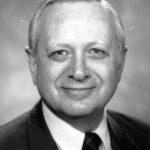The Chicago Tribune editorial of December 27 asks the question, “Is anyone honest anymore?” To support the conclusion that corruption in business affairs is widespread, the editorial writer cites a 2002 book by Goldman Sachs Senior Director Robert Menschel, titled Markets, Mobs & Mayhem.
The foremost example from the editorial and the book is the early 1900 electricity empire established in Chicago by Samuel Insull, whom the editorial writer compares with Enron’s Ken Lay. What is charged in the editorial is crooked accounting, stock fraud, and bogus affiliates set up by insiders to hide debt. This was possible because “Insull lavished contributions on politicians and thundered against the dangers of regulation.” In an attempt to promote daytime use of electricity, the editorial writer alleges, “Insull pushed the ‘all-electric home.'” Because of this, Insull’s “debt-ridden company went belly up.”
This is a good story, but it is not what happened. If the editorial writer had only consulted the primary source of the Insull tragedy, the truth would have been discovered. Forrest McDonald’s 1962 book Insull lays it all out.
First, his companies were considerably stronger than American business as a whole during the Depression. None of Insull’s operating electric or gas companies went into receivership or bankruptcy, and investors lost only a fraction of 1 percent of the value of their securities.
Second, Insull and all of his associates were acquitted in 1934 and 1935 of all charges. The prosecution was not able to make its case despite a massive effort by the political establishment, including the newly elected President Franklin Delano Roosevelt.
Indeed, the motivation behind the prosecution was the refusal by Insull to make payoffs to the crooked Chicago politicians, known at the time as the “Gray Wolves,” who regularly extorted payments from utilities. The editorial staff of the Chicago Tribune knew all about this at the time. John T. McCutcheon, the famous Tribune editorial cartoonist, depicted “Insull’s seat at the opera” with its back to City Hall as a widely recognized sign of contempt.
Third, contrary to claims in the editorial and the Menschel book, Insull was actually in favor of state regulation of electricity rates. He did not do this in order to restrict electricity output and raise price. Instead he wanted to make electricity plentiful and cheap so that everyone would have service, not just the wealthy few. To accomplish this, he needed a stable environment to finance the building of power generating stations and the connecting grid.
Insull was trying to avoid the New York banks led by the House of Morgan that controlled the financing of large utility projects. With predictable rate regulation, Insull could circumvent the banks and sell long-term bonds directly to the public. In doing this he established the financial markets in Chicago that soon rivaled those in New York. There is a touch of irony that Goldman Sachs’ Robert Menschel continues the New York bankers’ vilification of Samuel Insull, while at the same time manipulating markets and reneging on contracts, if their accusers are to be believed.
Fourth, while it is true Insull wanted to extend electricity usage beyond nighttime lighting to daytime use, “all-electric homes” were not a part of the strategy. Instead, he promoted the lighting of retail stores and offices. He also foresaw that the elevated and interurban trains would be large consumers of electricity in the daytime. This led him to acquire and expand in Chicago a mass transit system that continues to serve transportation demands in an environmentally friendly way.
Forrest McDonald describes the circumstances of Samuel Insull’s 1938 death in a Paris Metro station. His body was not identified for several hours and only a handkerchief and eight cents in francs were found on his person. The press widely reported that Insull died in anonymous poverty. However, his net worth at the time of his death was about $10,000 and from lifelong habit, he probably had as much as $2,000 in his wallet. McDonald concludes that some bystander or Paris police officer stole both the money and the wallet.
“And so in his death, as in his life, Samuel Insull was robbed, and nobody got the story straight.”
Jim Johnston is a policy advisor to The Heartland Institute and an economist retired from the Amoco Corporation. His email address is [email protected].




